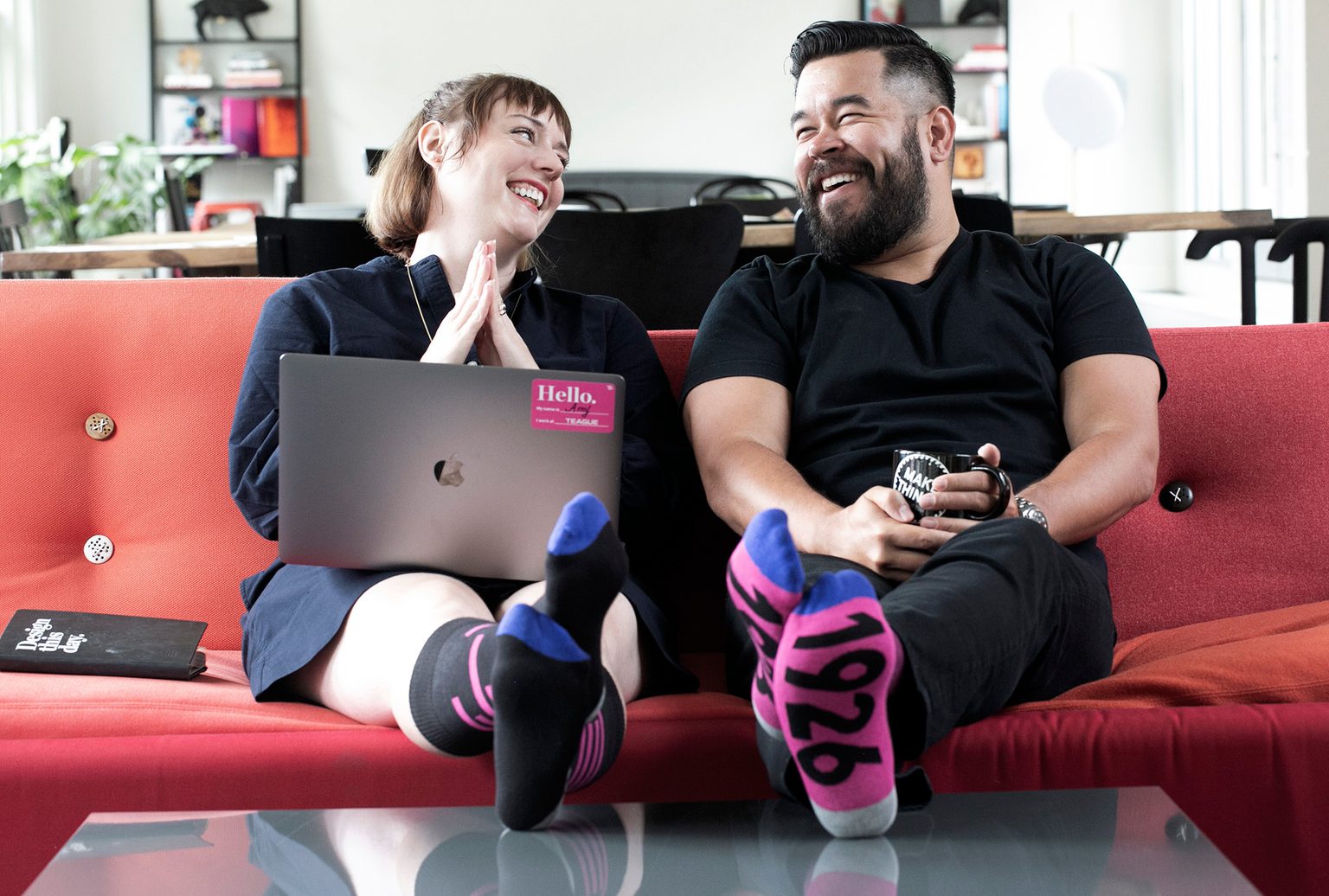
Our people-first commitment.
Our commitment
Great design starts with the people who create it.
Great design starts with people—and the mix of perspectives, backgrounds, and lived experiences they bring. When those differences come together, we see problems more clearly and imagine better ways forward. That’s why we’re committed to building a workplace that is diverse, equitable, inclusive, and accessible. A place where everyone feels they belong, and where the work is stronger because of it.
This commitment shows up in the way we listen, learn, and act. It’s ongoing, imperfect, and essential.
Listening, learning, and evolving
Progress isn’t a one-time effort. It takes honest conversations, active listening and the humility to keep learning.
We’re committed to steady, practical change — both within Teague and across the industries we collaborate with. In 2020 we launched executive-level education and bias-interruption training. Since then, we’ve expanded learning opportunities so every employee participates each year.
That same year, employees established the Teague Committee on belonging, access and allyship: a group dedicated to supporting an environment where each person can bring their whole self to work. With backing from our executive team and senior leaders, the committee guides our approach and helps hold us accountable.
To better understand how people experience our workplace, we’ve added targeted questions to our annual employee survey. The insights help shape our policies, practices and future commitments.
I’m continually inspired by the work of our Allyship team. They’ve created a space where people can show up as learners, listeners, and advocates—where empathy leads the way and every voice has room to be heard. Their dedication strengthens our culture and helps all of us do our best work.
Lori McGovern
People Operations Director | Teague
Looking ahead.
A commitment like this is a starting point, not a conclusion. We owe it to one another to be transparent about our progress and to continue pushing forward toward a future that provides access, belonging and effective collaboration for every person.